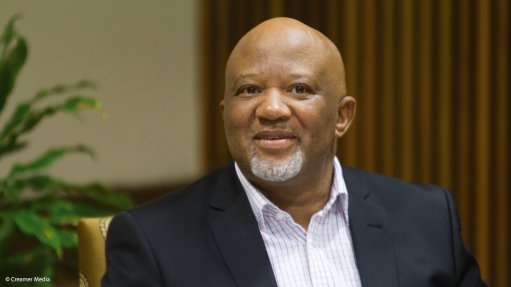
Deputy Finance Minister Mcebisi Jonas
Photo by: Duane Daws
The existing structure of the South African economy is not yielding the growth and employment returns required and a “new consensus” on the necessary trade-offs for igniting inclusive growth is, therefore, urgently required, Deputy Finance Minister Mcebisi Jonas argues.
Speaking at the Gordon Institute of Business Science this week, Jonas said this new consensus should eschew both populism and the current narrow interpretation of redistribution as being only about “changing the ownership of existing assets”.
“Simply changing the colour of the asset owners, without restructuring, will mean replacing a white elite with a black elite – fundamental inequality will not change. What we should rather be focusing on, is creating new wealth, new assets and making sure that the previously dispossessed get an increasing share of this new wealth.”
Agreeing the trade-offs would require “remarkable leadership” not only from government, but also from trade unions, business and civil society. In addition, there would have to be an acceptance that the economic structure should “change radically”, as South Africa’s poor growth performance was not a new phenomenon. “We have been growing at around 2% aggregate since 1970”.
It would also be necessary to prioritise growth, bridge the trust deficit between government and business and deal with the concentration of ownership and control in certain sectors, including State monopolies.
“We all know that we could be doing much better. It is about understanding where we could be more competitive, identifying and addressing growth constraints and aggressively supporting Team South Africa on the economic front. This is something we have not done well.”
The inclusive growth path adopted should, however, be alive to South Africa’s serious inequality problems and would have to be inequality reducing to be legitimate. “Growth must be at the centre of the new consensus . . . but we are not a normal society, so we can’t talk just about growth. Any growth we achieve will be unsustainable unless we address the 90/10 phenomenon, whereby 10% of the population owns 90% of the wealth.”
It was also critical for the consensus to restore policy certainty, which was a prerequisite for private sector investment. “We are extremely concerned that we are not seeing the levels of investment – not in liquid financial markets, but in fixed capital – that we require to ignite growth.”
Jonas, who in an affidavit swore that he rebuffed a potentially lucrative offer from the Gupta family in October 2015 to take on the role of Finance Minister, said corruption would also need to be confronted if South Africa were to realise its full growth potential.
He cautioned that corruption was the driving force behind the prevailing “asset-grabbing mind-set”, which had no impact on inclusive growth and no impact on reducing inequality. “It’s just about propping up an elite.”
Where rent seeking was the primary source of wealth creation, institutions would always be under threat, he added. “So we have to change the focus . . . because when innovation and productivity underlie wealth creation, societies are more likely to have stable State institutions.”
State capture, he argued, stemmed from rent seeking. “And the consequences are huge, because on the face of it you will have democratic institutions, but the real power will lie outside of those institutions – which is why many people talk about a parallel State.”